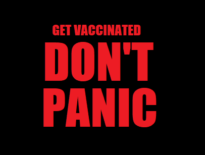
Thursday, October 21, 2021
Now again, with a flurry of recent news about vaccination options, I present answers to questions I’m frequently asked, or wish I was.
Public health officials are talking about “boosters” and “third doses” as if they’re different things. Are they?
Those are two bits of jargon that are worth explaining. Then you too can talk like the cool kids at the Department of Health. Additional doses (or third doses in the case of two-shot vaccines) are those needed when the typical initial vaccine series never produces an adequate immune response. This is the case in immunocompromised patients who don’t mount an sufficient immune response to the first two doses of the Pfizer or Moderna vaccine, or the first dose of the J&J vaccine. Those additional doses are considered part of the initial series because they are just trying to get the immune response high enough for the first time.
On the other hand, when someone has adequate immunity from the initial vaccine series, but then over time their immunity wanes, a vaccine dose given to raise their immunity back to adequate is called a booster. So people with normal immune systems have a good response to the initial COVID vaccine, but then many months later, their immunity fades. The vaccine to address that is called a booster.
An example is the current shingles vaccine, which is a two-shot series. The second one isn’t called a booster because you need the second one for a decent immune response, it’s just part of the initial series. On the other hand, a single tetanus shot yields a great immune response but one that fades over time, so we need a booster every ten years. Get it? The distinction has nothing to do with what’s in the syringe. It’s about what the dose is being used for.
That’s a fairly pointless distinction, and a dumb way to use jargon.
Absolutely. Medical jargon is usually dumb and frequently serves no purpose. Only engineers have cool jargon like max q (the time at which a rocket experiences maximum dynamic pressure), MECO (main engine cutoff), and LEO (low earth orbit). But that has to do with rocket boosters which we’re not discussing today. But if you learn the medical jargon, you can at least follow along.
So who should have an additional dose?
The Centers for Disease Control (CDC) recommends that people with compromised immune systems who received an mRNA COVID vaccine (those are the Pfizer and Moderna vaccines) receive an additional dose of the same vaccine at least 4 weeks after their second dose.
Who counts as immunocompromised?
Patients are considered immunocompromised if they are being treated for cancer, had an organ transplant or stem cell transplant for which they are receiving immunosuppressive medicines, have a primary immunodeficiency syndrome, have advanced or untreated HIV infection, or are being treated with high dose corticosteroids or other immunosuppressive medicines. The CDC page on additional doses has the details.
What if an immunocompromised patient received the J&J vaccine?
There’s currently no recommendation for additional doses for patients who received the J&J vaccine but stand by. That is likely to change as more data is reviewed.
OK. So immunocompromised patients should have an additional vaccine dose. Who should have a booster?
Boosters are recommended for the following groups of patients if they received their most recent dose of COVID vaccine at least 6 months ago: people 65 years and older, adults who live in long-term care settings, adults who have medical conditions that would make COVID particularly dangerous, and adults who live or work in settings that place them at high risk. The details of each of these groups are at the CDC page on booster shots.
As of a few days ago, boosters were only recommended for people who have received the Pfizer vaccine. But just this week the FDA authorized boosters for those who received the Moderna and J&J vaccine as well. The CDC will likely evaluate this recommendation in the next few days at which time boosters for these patients should be available at pharmacies.
Should the booster be of the same brand as the original vaccine series?
As of a few days ago, the answer was yes. Again, this week the FDA authorized allowing patients to get a booster of a different brand than their initial vaccine. And again, the CDC will evaluate this recommendation soon. This recommendation is based on a study that showed that patients who initially received the J&J vaccine had a bigger increase in antibody levels if they received a Moderna booster than a J&J booster. There doesn’t seem to be any guidance on which brand of booster patients should get, just that they can get any brand. That will at least increase flexibility when pharmacies have only one vaccine available. And it will allow patients who developed side effects after their primary vaccine series to try a different vaccine for the booster.
Why shouldn’t everyone get a booster?
That’s a good question. Many of my young and healthy patients who don’t meet any of the high-risk criteria above have expressed interest in getting a booster. That makes sense. Israel, which vaccinated virtually their entire population (12 years and over) with the Pfizer vaccine, is recommending boosters for everyone.
But the vaccines, while extremely safe, aren’t entirely harmless. For example, temporary swelling of lymph nodes under the arm has been reported after COVID vaccines. And this happens more frequently after booster doses than after the first two doses. There’s also a very (very very) rare side effect of the vaccine of myocarditis, heart muscle inflammation, that happens mostly in young men. There have been about 24 cases of myocarditis for every million doses of vaccine given (that’s one case for every 41,000 shots), and most of these cases have resolved entirely without lasting harm. But even this very small likelihood of harm suggests that if we were to give booster doses to people who were at very low risk of harm from COVID (like very young people) we might be doing about as much harm as good.
Finally, the data on the benefit of boosters isn’t nearly as strong as the data on the safety and effectiveness of the primary vaccine series. Each of the three vaccines went through very large randomized controlled trials with tens of thousands of patients. This yielded the most reliable sort of evidence that the vaccines are safe and effective. But the data for boosters is based on observational studies which simply follow populations of patients to see which patients have breakthrough infections and use that information to infer which groups would benefit most from boosters. This sort of information is much more susceptible to confounding factors and biases.
So I don’t suggest rushing to get a booster if one isn’t recommended for you. Wait a while and watch the recommendations as we learn more.
OK. So now I get the difference between “third doses” and “boosters”. Is the actual stuff in the syringe the same thing for each?
The Pfizer booster is the same as the first two doses of the Pfizer vaccine. And the J&J booster is the same as the initial J&J dose. The Moderna booster however is half the dose of the first two Moderna shots. So if you’re getting a third Moderna dose because you’re immunosuppressed, that’s actually not the same as the Moderna booster.
Is there anyone who should avoid the booster if they’re eligible?
If you tested positive for COVID-19 or if you received monoclonal antibodies for treatment or post-exposure prevention of COVID-19 you should probably wait 90 days until receiving a booster shot.
Do you have a favorite booster?
No. But I’m very excited about the Ariane 5 rocket, which features two solid rocket boosters and is scheduled to launch the James Webb Space Telescope in December. I hope to watch the launch live and cheer when it passes max q and when it reaches MECO.
Learn more:
COVID-19 Vaccines for Moderately to Severely Immunocompromised People (CDC)
Who Is Eligible for a COVID-19 Vaccine Booster Shot? (CDC)
Evidence to Recommendation Framework: Pfizer-BioNTech COVID-19 Booster Dose (CDC)
Should I Get a Covid-19 Vaccine Booster Shot? What to Know (Wall Street Journal)
Moderna and J&J Covid-19 Boosters, Mixing and Matching Authorized by the FDA (Wall Street Journal)

